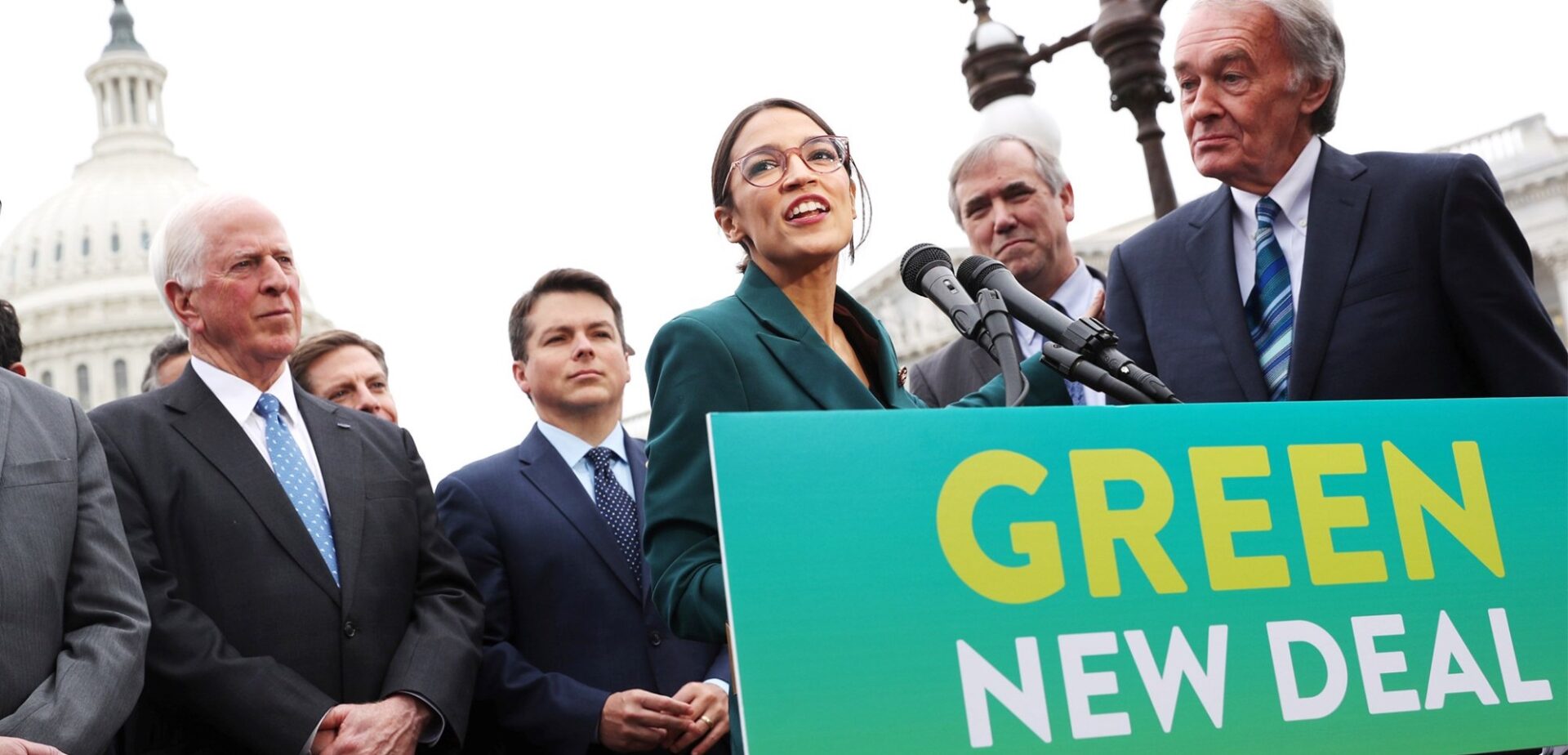
Ecological Civilization and the Green New Deal: Our Last Shot
Both China and the United States are fielding ambitious new sustainability plans. The planet's climate future will be determined by whether or not they succeed.
It bears repeating whenever discussing the climate future of our planet that China and the United States together contribute between 35% and 40% of annual carbon emissions. Regardless of the steps taken by other nations around the world, unless the United States and the People’s Republic of China begin dramatically reducing CO2 emissions within the next 10 years, there is a vanishingly small chance of us achieving the goals set out by the Paris Climate Agreement to limit global warming to 2 – or ideally 1.5 – degrees Celsius.
New Plans Envision a Path Forward
It is easy to feel disheartened by this reality, especially as emissions from both countries increased in 2018, contributing to an all-time high of 37 billion tons of global CO2 emissions. For both the US and China, the past decade has been marked by apathetic leadership, special interest groups, and corruption that have hindered progress despite widespread popular demand for climate and environmental action. Today, however, there is a glimmer of hope as both countries begin to formulate ambitious and far-reaching visions for a sustainable future.
In China, president Xi Jinping and the 18th Central Committee of the Communist Party have embraced the concept of an “Ecological Civilization” and have made the “harmonious development between man and nature” a top national priority. Just last week in the United States Congress, Senator Ed Markey and Representative Alexandria Ocasio-Cortez introduced a resolution for a Green New Deal, a vision for directing the American economy towards clean energy and ecosystem conservation, and by doing so, secure economic prosperity and security for American workers for years to come. Critically, due to timing, these ambitious and far-reaching plans will likely be our last chance to avert global climate catastrophe.
Facing Reality
The republican controlled senate and an administration that has demonstrated nothing but animosity towards environmental efforts makes passing a Green New Deal virtually impossible until the next administration takes office. Even assuming it then becomes a top priority, drafting and passing comprehensive legislation to meet all of the goals of the green new deal could take years. In a best case scenario, the US would then have just a handful of years in which to reduce CO2 emissions by 45% in order to stay within the IPCC’s latest guidelines. If the Green New Deal fails to garner widespread support under the next US administration, meeting these targets will be effectively impossible and we, along with the rest of the world, will have to accept the cascading social, economic, and environmental consequences of at least 2 degrees of global warming.
Similarly, if President Xi’s plan is unsuccessful, the world can kiss a 1.5 degree scenario goodbye. Last March, the Communist Party of China officially decided to remove a constitutional two-term limit on presidents, and in doing so potentially made Xi Jinping president for life. Since the president has expressed absolute support for forming a “Socialist Ecological Civilization”, this is likely the only path forward for emissions reductions in China for the foreseeable future.
Seizing the Opportunity
Both of these visions of sustainability must successfully usher in an era of unprecedented environmental stewardship in each of their respective countries. To ensure this, the nebulous visions for both a Green New Deal and an Ecological Civilization must be bolstered with actionable policies. The congressional resolution for a Green New Deal outlines the goals of the program, but it says little about the specific regulations, funding sources, standards, and market incentives that would be used. President Xi’s vision is considerably more fleshed-out, but there has been little international effort to ensure that regulations are enforced fairly and ethically on the Chinese people. In both countries, the pursuit of justice must remain paramount along-side the pursuit of environmental sustainability.
Fundamentally, the goal of the Green New Deal and China’s Ecological Civilization is the same: To build a robust economy that embraces, rather than ignores, the planetary constraints on our growth. Decision-makers must accept that there are insurmountable roadblocks to our current growth trajectory and the only way to progress as a society is to adapt our growth by promoting international cooperation, research and development, infrastructure investment, education, market regulation, and social change.
The Green New Deal and China’s Ecological Civilization are our last shot at a public effort to curtail global climate change. Without these plans, we leave the fate of our modern civilization to uncertain technology innovation and market forces, both of which have thus far failed to yield the widespread societal change that is needed. By working together, sharing ideas, putting aside our disagreements about the minutiae, and demanding action from future legislatures, we can ensure that neither of these plans join the echelons of failed climate action.
Oscar Serpell
Deputy DirectorOscar Serpell oversees all student programming, alumni engagement, faculty and student grants, and visiting scholars. He is also a researcher, writer, and policy analyst working on research initiatives with students and Center partners.

